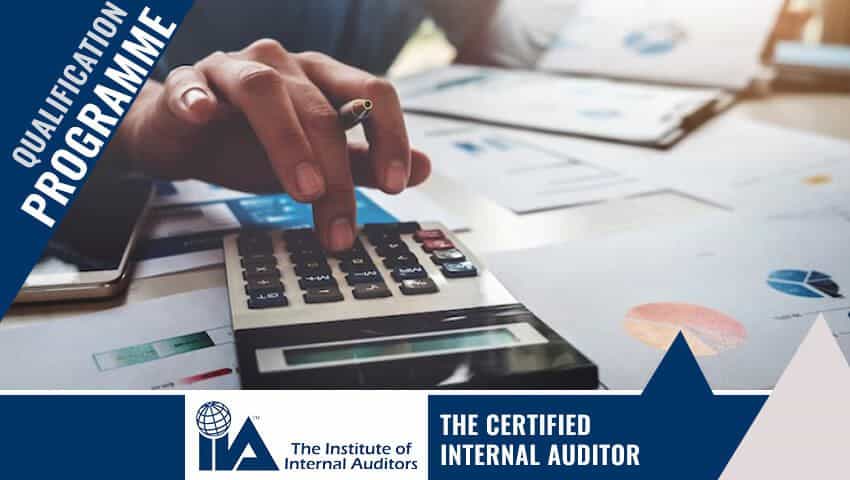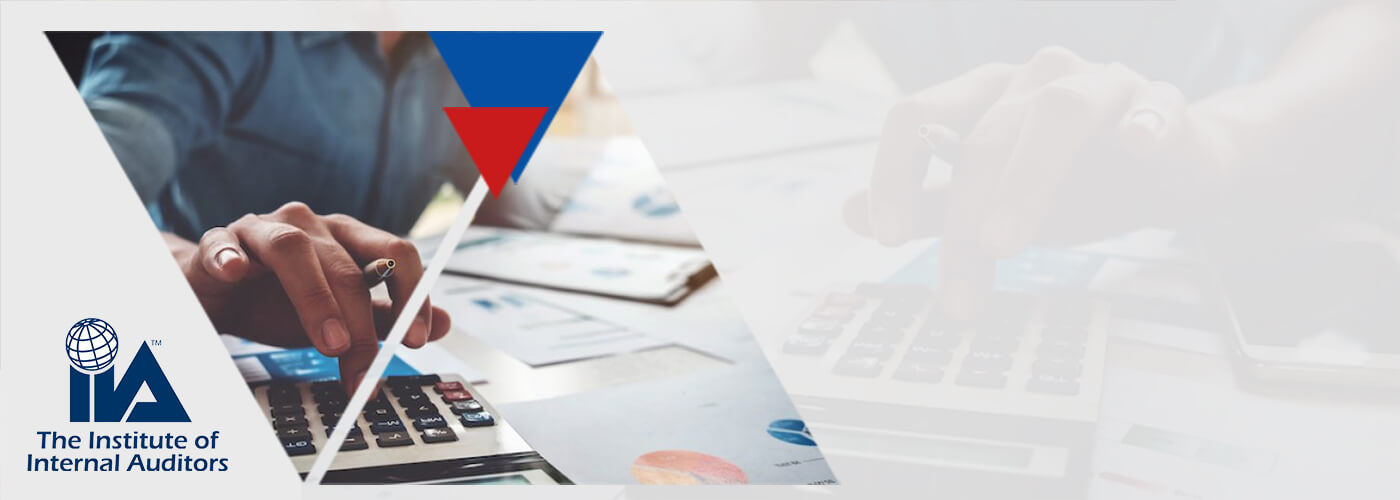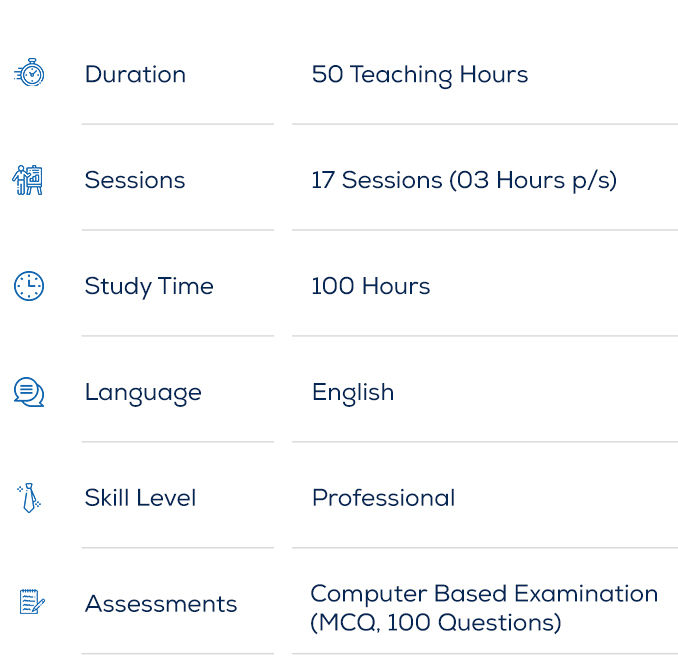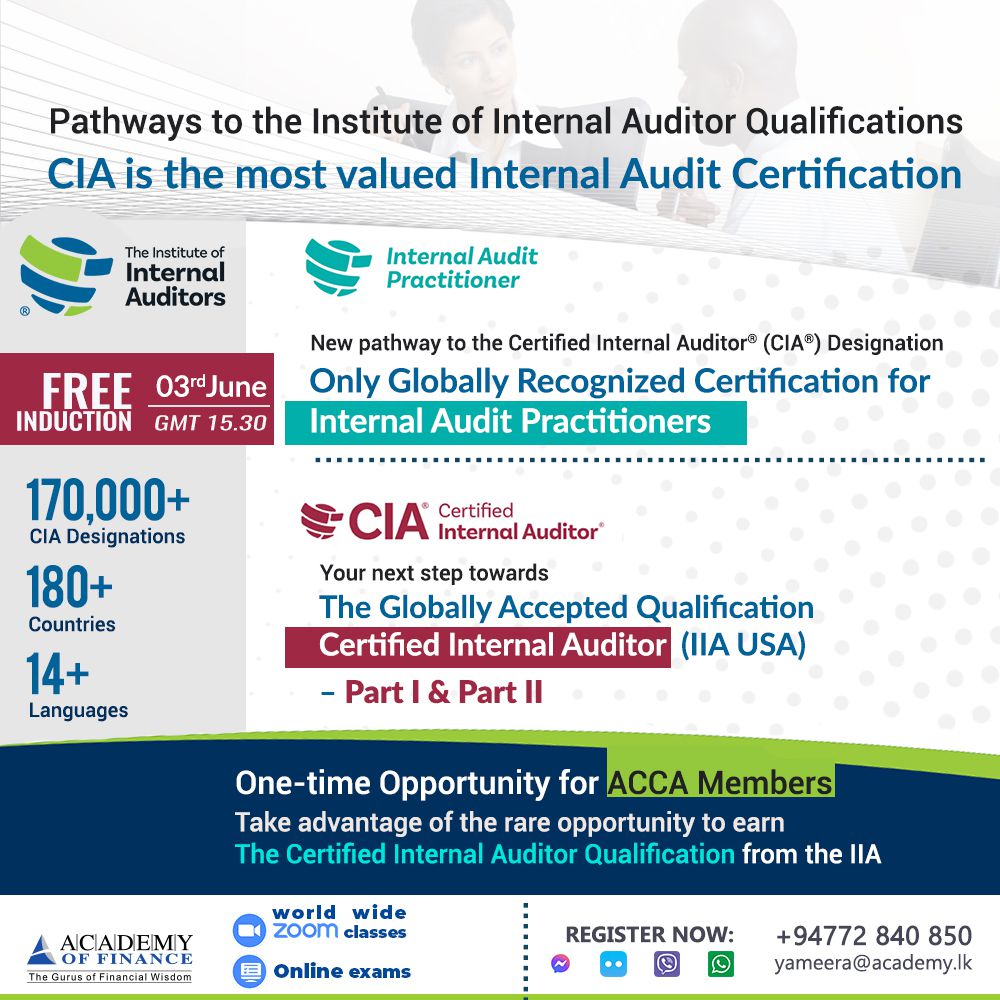
IIA – The Certified Internal Auditor (CIA)
Course Description:
The Certified Internal Auditor
IIA’s Certification in Internal Auditing qualification (Certified Internal Auditor) accelerates your success as a credible and proficient internal auditor. Internal audit certification is the optimum way to communicate knowledge, skills, and competencies to effectively carry out professional responsibilities for any internal audit, anywhere in the world. The qualification adds value to Organization’s governance, Risk management and Internal controls.
As a matter of fact, earning a professional internal audit credential is a critical step to being distinguished from your peers and will:
- Enhance credibility and respect.
- Sharpen skills and proficiencies.
- Increase advancement and earning potential.
- Demonstrate understanding and commitment.
Visit The Institute of Internal Auditors (IIA) to learn more about Global Institute
Who should study for The Certified Internal Auditor?
Who should study for CIA?
CIA designation is a valuable accomplishment and a professional advantage for auditors at all stages of their careers. This certification program aimed to;
- Chief audit executives
- Audit managers
- Audit staff
- Risk management staff
- Students enrolled in an accounting or other business or financial degree program.
Eligibility to become a CIA
The following criteria needs to be fulfilled at the time of online registration for the examinations.
| Education Level | Years of Work Experience Required |
| Master’s Degree (or equivalent) | 12 months – internal auditing experience or its equivalent at the time of certification. |
| Bachelor’s Degree (or equivalent) | 24 months – internal auditing experience or its equivalent at the time of certification. |
| Associate’s Degree, three A-Level Certificates, grade C or higher (or equivalent) |
60 months – internal auditing experience or its equivalent at the time of joining the programme . |
Work Experience
Candidates may apply to the certification program and sit for exams prior to obtaining the required work experience. However, candidates will not be certified until unless the experience requirement is met within the program eligibility period. Experience for the CIA’s certification program is based on the entry method (refer to the program requirements table above).
- Internal Audit
- Quality Assurance
- Risk Management
- Audit/Assessment/Disciplines
- Compliance
- External Audit
- Internal Control
How is the qualification structured?
The complete CIS educational programme comprises of three examination parts. After completing the examinations the candidates can apply for Certified Internal Auditor Membership.
Membership in The IIA means premier access to the standards-setting and guidance-producing body of the profession. Plus, exclusive industry-specific content, networking opportunities, and savings on world-class training are even more ways we connect over 200,000 members worldwide.
The CIA exam was updated in 2019 and is now available in 12 languages, with additional languages to be released throughout 2020 and into 2021.
How is the examinations structured?
Communication, registration and examination procedure with the institute is a complete online process.
- The examinations are conducted online.
- CIA Part 1 is a 2.5-hour examination with 125 MCQ’s.
- CIA Part 2 and part 3 are each 2.0 hours long with 100 MCQ’s to answer.
- Pass mark of 80%.
- Average pass rate X%
- Mock examinations before the Final exam.
Simply send us your details, we will get back to you with more information.
The complete qualification programme is structured, in 03 staged programmes which students should have to follow and complete each to qualify for the next.
Or just call us, our programme coordinators will guide you through!
The CIA exam Part 1 is well aligned with The IIA’s International Professional Practices Framework (IPPF) and includes six domains covering the foundation of internal auditing; independence and objectivity; proficiency and due professional care; quality assurance and improvement programs; governance, risk management, and control; and fraud risk. Part one tests candidates’ knowledge, skills, and abilities related to the International Standards for the Professional Practice of Internal Auditing, particularly the Attribute Standards (series 1000, 1100, 1200, and 1300) as well as Performance Standard 2100.
Additional noteworthy elements related to the revised CIA Part One exam syllabus:
- IPPF elements such as the Mission of Internal Audit and Core Principles for the Professional Practice of Internal Auditing are included.
- The syllabus features greater alignment with The IIA’s Attribute Standards.
- The exam covers the differences between assurance and consulting engagements.
- The exam covers appropriate disclosure of conformance vs. nonconformance with the Standards.
- The largest domain is “Governance, Risk Management, and Control,” which makes up 35%of the exam.
- A portion of the exam requires candidates to demonstrate a basic comprehension of concepts; another portion requires candidates to demonstrate proficiency in their knowledge, skills, and abilities.
Friday
June, 2022
The CIA exam Part 2 includes four domains focused on managing the internal audit activity, planning the engagement, performing the engagement, and communicating engagement results and monitoring progress. Part 2 tests candidates’ knowledge, skills, and abilities particularly related to Performance Standards (series 2000, 2200, 2300, 2400, 2500, and 2600) and current internal audit practices.
Additional noteworthy elements related to the revised CIA Part Two exam syllabus:
- The syllabus features greater alignment with The IIA’s Performance Standards.
- The exam covers the chief audit executive’s responsibility for assessing residual risk and communicating risk acceptance.
- The largest domain is “Performing the Engagement,” which makes up 40% of the exam.
- A portion of the exam requires candidates to demonstrate a basic comprehension of concepts; another portion requires candidates to demonstrate proficiency in their knowledge, skills, and abilities.
TBA
The CIA exam Part 3 includes four domains focused on business acumen, information security, information technology, and financial management. Part Three is designed to test candidates’ knowledge, skills, and abilities particularly as they relate to these core business concepts.
Additional noteworthy elements related to the revised CIA Part Three exam syllabus:
- The number of topics covered on the Part Three exam has been greatly refocused to the core areas that are most critical for internal auditors.
- The exam syllabus features a new subdomain on data analytics.
- The information security portion of the exam has been expanded to include additional topics such as cybersecurity risks and emerging technology practices.
- The largest domain is “Business Acumen,” which makes up 35% of the exam.
- A portion of the exam requires candidates to demonstrate a basic comprehension of concepts; another portion requires candidates to demonstrate proficiency in their knowledge, skills, and abilities.
TBA
More information on Certified Internal Auditor
The only globally accepted designation for internal auditors
Why study Certified Internal Auditor?
Auditors who hold the CIA designation perform internal audit engagements with diligence and confidence. Ultimately, becoming certified will:
- Prove your willingness to invest in your own development.
- Demonstrate your commitment to your profession.
- Improve your internal audit skills and knowledge.
- Build confidence in your knowledge of the profession.
Key features:
- The Professional Certification Board (PCB) has approved work experience and education exemptions for Association of Chartered Certified Accountants (ACCA) qualified members
- An education exemption for U.S. Certified Public Accountant (CPA) active license holders pursuing the CIA certification.
- IIA members receive discounts on CIA review materials and courses and have access to the latest exam preparation resources, networking opportunities, and current CIA news and information.



